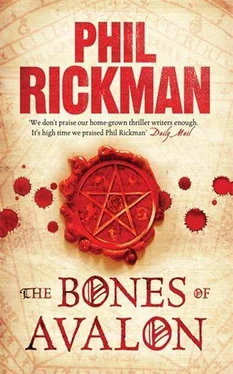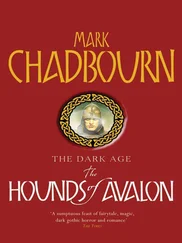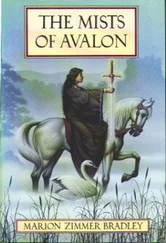Ormond House - The Bones of Avalon
Здесь есть возможность читать онлайн «Ormond House - The Bones of Avalon» весь текст электронной книги совершенно бесплатно (целиком полную версию без сокращений). В некоторых случаях можно слушать аудио, скачать через торрент в формате fb2 и присутствует краткое содержание. Жанр: Исторический детектив, на английском языке. Описание произведения, (предисловие) а так же отзывы посетителей доступны на портале библиотеки ЛибКат.
- Название:The Bones of Avalon
- Автор:
- Жанр:
- Год:неизвестен
- ISBN:нет данных
- Рейтинг книги:4 / 5. Голосов: 1
-
Избранное:Добавить в избранное
- Отзывы:
-
Ваша оценка:
- 80
- 1
- 2
- 3
- 4
- 5
The Bones of Avalon: краткое содержание, описание и аннотация
Предлагаем к чтению аннотацию, описание, краткое содержание или предисловие (зависит от того, что написал сам автор книги «The Bones of Avalon»). Если вы не нашли необходимую информацию о книге — напишите в комментариях, мы постараемся отыскать её.
The Bones of Avalon — читать онлайн бесплатно полную книгу (весь текст) целиком
Ниже представлен текст книги, разбитый по страницам. Система сохранения места последней прочитанной страницы, позволяет с удобством читать онлайн бесплатно книгу «The Bones of Avalon», без необходимости каждый раз заново искать на чём Вы остановились. Поставьте закладку, и сможете в любой момент перейти на страницу, на которой закончили чтение.
Интервал:
Закладка:
Yet there was also a board offering lurid-hued foreign sweetmeats for those who could afford them, as well as local preserves. And a band with battered lutes and skin drums played some country dance tune outside the Church of the Baptist.
No-one danced, though. Small groups stood in wary silence under a sky of roiling cloud. Shouts of arousal could be heard in the distance, the criers and constables summoning a rabble.
Monger nodded toward a thin little woman in a doorway. She wore an eyepatch and was purveying jams from a tray.
‘Joan Tyrre,’ he said. ‘Moved here about three years ago from Taunton. Used to do the market there until she was taken in for questioning about her relations with the fair folk.’
‘The fair… ’
I looked at him. A soured gash of watery sunlight leaked between the clouds like pus from a poisoned wound.
‘Met a strange man at the market one day who sought her friendship,’ Monger said. ‘And she followed him to his… dwelling place. When they found her, she’d lost the sight of both eyes.’
I blinked. Memories. A legend I’d heard in my childhood: if you saw what men and women of this world were not supposed to see, you might be robbed of your sight. Don’t you go wandering away, my mother would say, or you might go where you’re not wanted and come back blinded.
Must needs admit I’d never before encountered one on whom this punishment had been inflicted.
‘By the time she was brought before the church court,’ Monger said. ‘She had some sight back in one eye.’
‘Accused of…?’
‘I don’t know the exact nature of the charges. Discourse with the faerie? Is that a charge, or does it all come under the gross heading of witchery? Someone probably reported her to the local vicar. I imagine she was lucky to escape prison at the very least. And knew it, which was why she moved herself over here.’
‘I don’t follow you. Why here?’
‘I guess she thought it best to leave Taunton for a place where such peculiar talents might be not wholly condemned. ’Tis said that if she takes off the eyepatch what she sees through that blinded eye is not of this… Ah… now… observe that woman over there.’
A gentlewoman in a grey cape was bending to speak with a younger woman with a faded red shawl over her hair and shoulders, sitting on a step with a basket of pink ribbons in her lap. As I watched, she stood up with her basket and the gentlewoman followed her into an alleyway.
‘In the bottom of the basket,’ Monger said, ‘under the ribbons, lies a much-prized skrying crystal.’
I said nothing. Back in Mortlake I had five of them. From a stall, I bought two winter-withered apples and gave one to Monger, and we moved towards the top of the town, where he pointed out a woman who, he said, read the mystic cards from France which foretold destiny. Then he nodded to a man with two terrier dogs.
The man grinned.
‘Just off home for my ole stick, Joe. Case I runs into a feller with horns and claws drippin’ blood.’
He was short, with a cloud of hair and a beard white as a napkin to his chest and eyes that glinted like chips of quartz. Monger smiled thinly at him.
‘A touch more discretion may be called for this day, Woolly. Even for you.’
‘Oh ar? I’m supposed to join the hue and cry in pursuit of whoever they decides cut up this Lunnon feller? Well, you know what I says to that, Joe, man? I says they can piss off.’
He nodded, patting his thigh, and the terriers followed him into the throng.
‘Like so many of them,’ Monger said, ‘that fellow gets away with it because he’s useful. Hired by Fyche to find the original well at Meadwell, and he found two.’
‘Found?’
‘By use of the forked twig that jumps in the hand.’
‘A water diviner.’
‘A water witcher, some called it.’
They did. Once outlawed as witchcraft, but always far too useful to be banned for long, and I only wished I could do it myself. I shook my head.
‘It’s science, Master Farrier. Science we don’t yet understand. There’s a man named Agricola, who is said to be able to find metal ore in the ground by similar means. You’d think it were not possible.’
‘Most things are possible,’ Monger said. ‘And some things which are not possible are said to be possible… here. Especially those involving water, for we’re yet an island. Avalon, in spirit.’
He continued to stroll placidly, almost gliding, through the market, walking like a monk. As if he still were a monk and protected.
‘All gone!’ An old man in an apron stood in the doorway of a baker’s shop, waving his arms at the queue outside. ‘Bloody constables took a whole batch, look, nothing I could do.’
‘Pies,’ Monger said. ‘Master Worthy makes the finest mutton pies in Somersetshire.’
As the queue dispersed, muttering, Monger led me into the shop.
‘All gone, Joe,’ the baker said. ‘I just-’
‘Yes, we heard. Master Worthy, I’d like you meet Dr John, from the Queen’s Commission on Antiquities, here to make account of what remains from the abbey.’
The old baker, plump and bald, I’d guess, beneath his cap, went conspicuously stiff.
‘Dr John seeks only assurance,’ Monger said, ‘that such items that were not destroyed are… in good hands. You have nothing to fear.’
I looked at Monger. How could he be sure that this man had nothing to fear from me? He knew me not.
Something here was not right.
When we emerged, the tip of the tower upon the tor had appeared ’twixt two market stalls, lit by a sudden angel-fan of creamy light.
‘And this is it?’ I said. ‘These are Fyche’s sorcerers?’
In a hole in the wall, concealed behind a disused oven, several old books had been hidden, the finest of them being the first volume of Steganographia, the masterwork on magic and cypher by Johannes Trithemius, the late Abbot of Sponheim. It could only have come from the abbey, and you could have locked me in that bakery with it for a week.
‘Emmanuel Worthy fancies himself as an alchemist,’ Monger said. ‘For no reason other than the possession of those books with their arcane diagrams that he’ll never understand. But I could point you to others more potent. A healer who cures through the toes in the old Egyptian way. A seventh child of a seventh child who foresees the future. At least five people who insist they can commune with the dead. Oh, and a maker of charms from the wood of the cross – though I might take issue with that.’
‘But all known to-’
‘All known to one another, yes. Even scattered over the town and various of the outlying villages, they’re a community. Some of them will gather together later, when the market’s spent. At least -’ Monger glanced over his shoulder – ‘they would usually gather. Tonight, things may be different.’
‘Were they here when you were a monk at the abbey? Did you know then who and what they were?’
‘Some were here. Not so many as now. Or maybe it was just that we didn’t notice them the same because we, the pious brethren, were in the majority then.’
I learned that many of these seekers – Monger could only call them that – had journeyed here from the ends of the country, and some from abroad. When the abbey flourished, this had gone, if not unnoticed, at least uncommented on. The town was growing and always full of pilgrims. It was only after the fall of the abbey and the exodus of the wealthy and the pious that people began to notice the nature of the incomers who did not leave… who, in fact, began to increase their numbers, some arriving like poor travellers, living in camps and abandoned houses. Attending church only as much as was necessary to avoid prosecution, for their own religious obediences clearly belonged… elsewhere.
Читать дальшеИнтервал:
Закладка:
Похожие книги на «The Bones of Avalon»
Представляем Вашему вниманию похожие книги на «The Bones of Avalon» списком для выбора. Мы отобрали схожую по названию и смыслу литературу в надежде предоставить читателям больше вариантов отыскать новые, интересные, ещё непрочитанные произведения.
Обсуждение, отзывы о книге «The Bones of Avalon» и просто собственные мнения читателей. Оставьте ваши комментарии, напишите, что Вы думаете о произведении, его смысле или главных героях. Укажите что конкретно понравилось, а что нет, и почему Вы так считаете.












